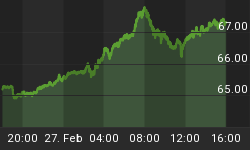S&P is reportedly working on developing a custom credit rating scale for China, but some investors are worried that it could do more harm than good. Unlike S&P's custom ratings scale for emerging markets like Argentina, Israel and Taiwan, the coming Chinese rating scale will not include the recalibrated "mapping specifications" that indicate how the ratings relate to the rest of S&P's global ratings.
Instead, the ratings will reportedly stand alone, meaning that when an A+ is issued in China, it is to be thought of as an A+ rating issued anywhere else globally.
(Click to enlarge)
S&P is reportedly working on setting up an independent business in China where it will compete not only with the local ratings firms, but also Moody's and Fitch, who are also applying for licenses to open up shop in China. And since American companies typically lack the guanxi necessary to thrive in the Chinese market, S&P is aiming to tailor its bond rating system to all types of issuers, including governments and corporations, in a way that will "fit the local situation" (and presumably placate the Communist Party).
"We believe that considering the size, dimensions and extent of diversification of China’s domestic capital market, there needs to be a set of special rating standards and rating methodology that fit the local situation," S&P said in a document translated by the Wall Street Journal. Unsurprisingly, debt investors aren't buying it.
Related: The Latin American Crypto Boom Is Underway
That's because ratings in China won’t necessarily correspond to global ratings, and it appears there will be no widely available way to convert these ratings to global rating grades.
Prashant Singh, an emerging-markets debt manager at Neuberger Berman told the WSJ: "If the ratings show little credit differentiation and do not reflect true credit risks, then investors will not give much credence to them."
As WSJ points out, only two American non-financial corporations have the AAA, S&P's highest rating: Microsoft and Johnson & Johnson. Meanwhile, the U.S. government gets only a double A+ rating from S&P. That a U.S. ratings firm would hand out AAA ratings to barely solvent Chinese industrial firms is a bitter irony, indeed.
"It is almost like being in a classroom where everyone is getting a (top grade), but in reality, not everyone is that good," a sovereign analyst with BNY Mellon Investment Management told the WSJ.

(Click to enlarge)
If S&P follows in the footsteps of local Chinese rating agencies, they could wind up posting AAA ratings for companies that are clearly distressed, like HNA Group Co., which reportedly has a triple-A rating from Shanghai Brilliance Credit Rating & Investors Service Co despite the fact that the company is selling assets to meet its debt obligations and that it paid nearly 9% to borrow money last year over a term of one year.
Everybody knows that in this business, money talks. Ergo, there’s only one way that S&P will be able to persuade bond issuers to pay for their ratings - and that's to tell the Chinese firms what they want to hear to stay "competitive" with the domestic ratings agencies. The economic environment in China, where some asset managers and many institutions are restricted from buying lower rated bonds, naturally tends to help inflate the entire ratings industry.
Out of the 300 Chinese companies that have issued debt outside the mainland, S&P hasn't offered any of them a higher than A+ rating - that's five notches below AAA. China's sovereign rating is also a A+. But perhaps once S&P opens its domestic subsidiary, it will have reason to reevaluate.
But without mapping specifications like those that S&P has implemented in other emerging markets, there is no way for foreign investors to interpret credit ratings in the world's most opaque major economy.
Just like they did during the run-up to the financial crisis in the U.S., S&P appears to be hurting, not helping, the situation in China.
By Zerohedge
More Top Reads From Safehaven.com
















